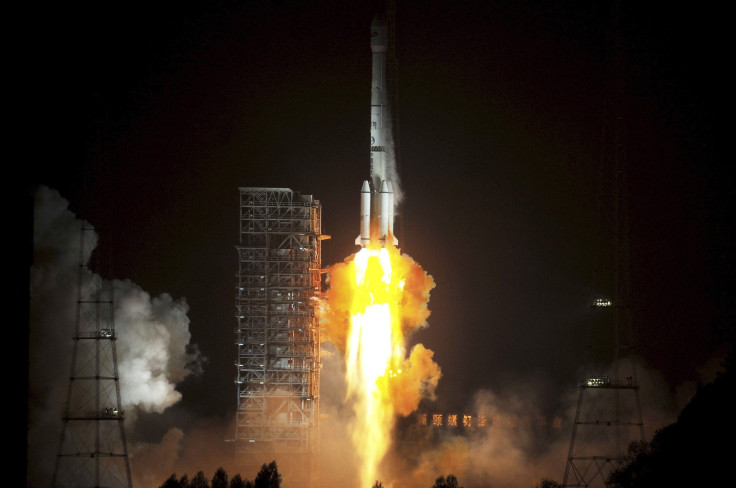
Bolivia has a lot to celebrate this week, as the South American nation has launched its first telecommunications satellite. Crowds gathered in the central square in La Paz early Friday morning to see the launch of the satellite -- which was named Tupac Katari--via television from its base in China. The satellite was launched in China's southwest Sichuan province from Xichang Satellite Launch Centre at 16:42 GMT. Bolivia reportedly financed the telecommunications satellite with a $302 million credit from the China Development Bank.
President Evo Morales was in China for the launch, and told media outlets that this launch is crucial for the nation -- Bolivia is reportedly one of the last South American countries to have its own satellites -- as it would mean the country would no longer be dependent on foreign powers for communication. "This will be our light, after living for so many years in the obscurity, the suffering and the domination of the empires," said President Morales, according to BBC. In fact, according to the director of the Bolivian Space Agency, Ivan Zambrana, the satellite will help reduce communication costs for Bolivia and would help improve television and Internet for those living in rural areas.
While Bolivia is taking strides in terms of technology with this launch, it is also not forgetting its indigenous culture and roots. Prior to the launch, indigenous leaders took part in performing ritualistic ceremonies to "Pachamama" (Mother Earth). What's more, the satellite's name is a tribute to an 18th century Aymara hero who led the resistance against Spanish colonizers. Túpac Katari was born Julián Apasa Nina but renamed himself to honor resistance leaders Túpac Amaru II and Tomás Katari. Katari recruited an army of thousands, but was ultimately defeated by the large forces of the Spanish troops and was executed.
© 2025 Latin Times. All rights reserved. Do not reproduce without permission.






